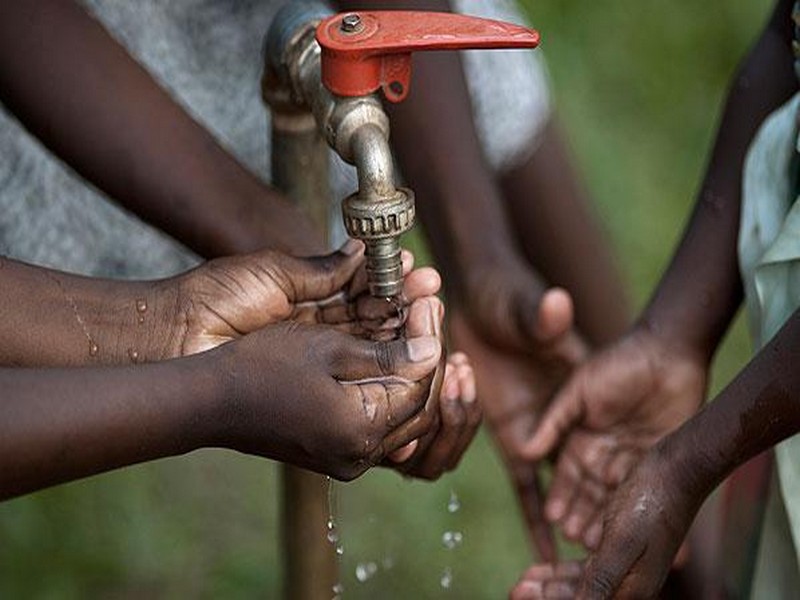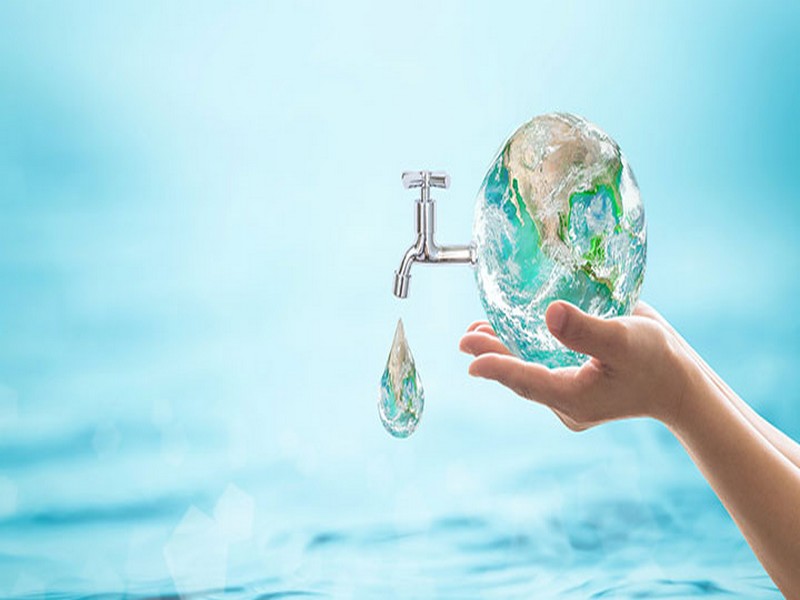Recherchez sur le site !
Recherche avancée / SpécifiqueCatégories publications
+ Sciences De La Terre - Archéologie - Astronomie - Spéléologie - Ecologie - Pédologie - Volcanologie - L'hydrogéologie - Géomorphologie - Minéralogie - Pétrologie - Paléontologie - Géologie + Climatologie - Réchouffement climatique - Changement climatique + Plantes - Plantes Aromatiques - Plantes médicinales + Zoologie - Faunes + Botanique - Flors + Sciences humaines - Géo Eco Tourisme - L’anthropologie - L'Histoire - Démographie - Sociologie - Géographie - Patrimoine culturel
Géo éco tourisme inclusif

Géoparc et Recherche Scientifique
Le coins de l’étudiant


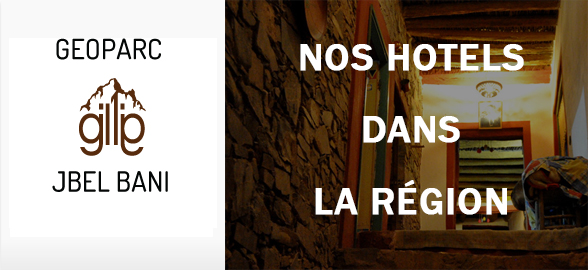
Blog Géoparc Jbel Bani
INNOVATIVE APPROACHES TO WATER SECURITY: ICTS AS PLATFORMS FOR SYSTEMIC ONLINE NEGOTIATION (Maroc-Géoparc Jbel Bani)
By SANDRINE SIMON
Systems Department, Open University, Technology Faculty Walton Hall, Milton Keynes, MK7 6AA UK
ABSTRACT
This paper presents the initial outcomes of the research project ‘Innovative approaches to water security using ICTs for systemic online negotiations’ carried out between the department of Systems at the OU, UNESCO PC-CP program and UNESCO-IHE Institute of water education.
It explores how water conflicts could be managed
- By being prevented through integrated water management
- Through better communication amongst water stakeholders and more systemic analysis of water problems at stake.
The paper presents how ICTs can provide both a support for such systemic analyses and an enabling communication tool that presents an interesting democratic alternative to currently existing negotiating platforms. The use of Soft Systems Methodologies (SSM) represents an important step forward in negotiation methods:
- it helps examine how the various parties’ perspectives can be better to each other, hence helping taking cultural dimensions of negotiations into account and
- It supports an integrated representation of water issues, human-environment interactions and environmental security.
The challenge lies in using SSM online in ways that will
- democratize the negotiation process because based on a ‘neutral platform’,
- empower participants in that they take part in the ongoing construction of the online tool, and
- broaden the negotiation boundaries by making best use of online resources to build negotiation cases and understand better each other’s perspective and culture vis a vis negotiation styles and purpose.
INTRODUCTION
Since the rise of environmentalism, in the 1960s, various international meetings as well as research activities have taken place in order to define what managing the natural environment in a sustainable way does imply. After developing some environmental and sustainability indicators, models and accounts, researchers are progressively putting more emphasis on the political and social dimensions of ‘decision-making’ for a sustainable future, including new valuation and participatory methods, for instance.
This trend in research and policy has been observed in the area of water management – a growing area of concern since the access to clean water, essential to human survival, is increasingly scarce, the sharing of the resource unequal, and the control over water pollution and irrigation techniques still not fully mastered. Within the range of contemporary ‘environmental problems’, the world water crisis is high on the agenda and is, moreover, recognized as a crisis in management (Postel, 1996; Gleick, 1993; Bruch et al., 2005).
Work has been done to identify what managing water sustainably means and authors such as Miller (1998) came up with the following description: “An effective strategy for the sustainable management of water resources involves preserving the ecological integrity of water supply systems, wasting less water, allowing fair access to water supplies, and giving people a say in how water resources are developed and used (i.e. participatory decision-making). Sustainable water use is based on the common sense principle stated in an old Inca proverb: " The frog does not drink up the pond in which it lives” - adapted from Miller (1998: 511). More recently, research has focused on identifying how Integrated Water Management can help in achieving sustainability in the area of water management. IWM implies that the various dimensions (economic, biological, political, spiritual and cultural…) of water issues are all taken into account in what is described as a systemic way - one that explores the interconnections between these various dimensions.
A new area of concern therefore relates to conflictual situations generated when natural resources are not being managed in a sustainable, integrated way. Within it, the growing literature on environmental security (Homer-Dixon, 1994) highlights the fact that the most important causes of violent environmental conflicts are land, forests, water and fishery. But, as Schwartz and Singh explain: “… it is water, in particular river water, that has gathered the most attention from researchers. Proponents contend that water, like oil or other monetary lucrative and non-renewable resources, can potentially constitute a significant source of economic and military strength for a nation. And when water demand outstrips available supply, a nation is able to justify military action (offensive or defensive) in the name of economic preservation and national security” (Schwartz and Singh, 1999: 8). Other people go as far as asserting that: "The wars of the 21st century will be over water" (Serageldin, quoted in Ohlsson, 1985).
In this paper, I therefore concentrate on the notion of environmental (in)security applied to the area of water conflicts and explore how new platforms such as Information and Communication Technologies, as well as IWM, could help in the resolution and prevention of such conflicts. The first part focuses on the notion of ‘water security’ and its systemic dimensions. The second part explores the promises presented by the use of ICTs in decision-support and negotiation processes. And in the third part, I present the work being carried out through a research project initiated by the Open University and the UNESCO-IHE partnership (Institute for water education) on online systemic negotiation techniques. My overall objective is to demonstrate that the use of ICTs can greatly contribute in making water management more integrated and democratic.
TOWARDS SYSTEMIC WATER CONFLICTS MANAGEMENT
Environmental in-security occurs when there is an environmental problem that concerns a variety of stakeholders who suffer from it in different ways and have conflicting interests and needs and when these people are not happy to make concessions for the benefit of the whole community and of the environment. Disputes and power imbalances then typically appear and the whole situation can escalate into a conflict.
Problems related to 'environmental in-security' are far from being new: international wars have been fought over access of access to land and water since biblical times. What might be new, however, is the rate at which these conflicts appear and accelerate, as well as their size and the complexity related to their implications. In order to take account of this complexity, new approaches to conflict resolution and security need to be developed.
One important factor to take account of is the systemic dimension of ‘environmental security’ - the links that exist between ‘factors of environmental insecurity’.
Figure 1. the inter-related drivers of environmental conflicts
Exploring these inter-relations can, for instance, help in understanding the distinction between direct conflicts (which arise because of direct competition between two or more parties for the control and access to the resources) versus indirect conflicts (which refer to conflicts that arise when resource scarcity interacts with one or more social/economic factors to elevate friction within or between states). Examples of direct water conflicts around the world abound and also vary in intensity. They relate to the sharing of water resources, tensions created by its pollution, the construction of dams, flow diversion, differences in the evaluation of the resource... Most famous examples include conflicts related to the construction of dams on the Nile, or in India, conflicts related to the allocation of water in the Middle East, problems of biodiversity damages and diversion of the river Danube, tensions generated by high levels of pollution in the Rhine… (See Schwartz and Singh (1999) for more examples of wer conflicts). Nearly all examples of direct water conflicts ‘hide’ indirect dimensions: i.e. complex repercussions or inter- related causes which show that what seems like a mere conflict over the sharing of water can in fact also relate to ethical, social or political ‘clashes’ (for instance the exclusion of certain groups of the population, for economic - e.g. through water prices - or cultural - for instances certain casts - reasons).
Research in the area of sustainable water management takes account of the systemicity of issues at stake. The growing emphasis being put on participatory techniques has progressively helped in taking account of the inter-connectedness existing between ‘environmental stakeholders’ through approaches such as water resources collaboration - which is becoming a dominant approach to addressing complex ecosystem management issues (Wondolleck and Yaffee, 2000). As these authors have shown, combining the systemicity of water issues and actors can be a promising avenue in the area of water conflict resolution and prevention. This is because:
- Many stakeholders look to collaboration as an alternative to expensive and awkward court cases where environmental disputes can be addressed;
- Collaboration can serve as a learning process by bringing together information and analysis from a broad range of sources to develop a more holistic understanding of problems.
- Collaboration offers an opportunity to reduce waste and duplication, reduce conflict and share expertise in (frequent) situations where agencies and organisations have overlapping responsibilities.
In theory, allowing various types of stakeholders to take part in discussions on how to manage water resources best and collectively is desirable. In practice, it is not always feasible: until participation started being considered as an important component of environmental decision making, there was a real lack of fora and recognised institutions where stakeholders could share their environmental knowledge. In certain cases, this institutional gap was politically deliberate and was intended at stopping certain stakeholders from being heard - for instance in non-democratic regimes. In other cases, the institutional structures in place were insufficient or inefficient.
In this paper, I am examining a recent development now taking place in the area of participatory decision-making. It is centered on participatory platforms that are not ‘institutional structures’ per se: instead, they are ‘virtual’ platforms, based on the use of innovative Information and Communication Technologies.
THE PROMISES OF ICTS IN WATER CONFLICTS MANAGEMENT
By Information and Communication Technologies (ICTs), I refer to contemporary electronic and digital (computer based) media and data processing, including telecommunications and the internet.
More and more people are showing interest in the role of ICTs in promoting access to information and facilitating public participation in environmental decision making.
The main function of the media has been shown to lie in its ability to provide a communication channel between parties and to create an atmosphere within which conflicts can be resolved. Besides, it provides a relatively neutral terrain within which to operate and invite stakeholders to negotiation processes they would never be involved in, in more official negotiation fora.
An exploration of their potential reveals that ICTs seem to provide the capacity to:
- allow people to both use and enter data, hence acting as a two way process
- regard the community itself as a database; value it as a source of information
- generate empowerment and a sense of ownership of the tool since people take part in its construction
- At least in theory, provide ease and equality of access; ICTs appear to be ‘neutral, open to all platforms’
- facilitate participation by focusing, increasing and supporting more communication
- increase participation by making people more accountable and responsible
- increase the potential for better social inclusion
- animate research and interest in how qualitative and qualitative data, as well as different forms of information, can better be integrated
- animate research and interest in how to improve the integration between practical and theoretical.
It has been shown that the application of ICTs to the area of conflict resolution is still relatively un-explored. Bazerman’s research network (NEG), for instance (from 2002 onward) provides electronic abstracts of 12 negotiation journals, but only one (edited by Laurie Weingart), is devoted to ICT and negotiations (Uljin and Kersten,
2004). I argue that it is a promising area of research and application. The governance of common property resources for sustainability requires processes of arbitrage between different interests, conflict management and, where possible, reconciliation of multiple criteria for good environmental quality. ICTs could be used to take account of multiple, conflicting interests and systems of value relating to alternative environmental practices, hence constituting tools in deliberative democracy processes - the more varied the types of stakeholders involved and the more conflicting interests and objectives being represented, the richer the deliberation, sharing and learning process.
Authors such as Ulijn and Kersten (2004) share this view and have shown that electronic media can be used by negotiators in various ways, for instance to communicate with each other and with the computer systems, or in structuring and analyzing the negotiation problem, eliciting negotiator preferences, visualizing the negotiation process, and assessing offers and counter-offers.
Recent studies on the impact of technological innovations on negotiations include comparisons of the effects of “old” versus “new” negotiation media. It has been shown, for instance, that Computer Mediated Communication is superior in equalizing participation and in reducing inhibition in the idea generation phase, which is crucial in negotiation processes since participants need to feel interdependent if they wish to pursue a mutually beneficial agreement.
Research also shows that ICTs do not only allow for asynchronous negotiations among distributed parties, but can spawn new forms of negotiations. In effect, by having access to up to date and abundant information, parties have the capacity to build stronger cases in the negotiation process, for instance. Beside, parties can communicate more often at a distance and at cheaper cost. Also, various forms of data can be used: there does not need to be reliance on word, solely - videos, maps, geographical information systems, audio records… can be used as a part as information and perspectives sharing during the negotiation process.
Despite these promising avenues, some important factors remain that requires researchers in the area of ICT uses in negotiation processes to be cautious. Thus,
- Some people clearly lack access to or understanding of ICTs; focusing participation solely on ICTs could potentially marginalize some groups of people.
- the different levels of understanding of issues as well as modes of expression that different groups of stakeholders typically experience and have are difficult to integrate in one ‘recipient’;
- at which phase of the decision-making process is the knowledge shared in these ICTS actually used?
- It can take a lot to actually trust other stakeholders who are part of a participatory process: this can be even more difficult if the other participants are not directly visible and physically present, as is the case in a ‘virtual platform’.
It is in view of addressing these shortcomings and in order to explore the influence of culture on negotiation processes ‘hosted’ by ICTs that the Systems Department of the Open University and the Institute for Water Education (UNESO-IHE) have initiated a research project based on the construction of online systemic negotiation activities to help manage water conflicts better.
SYSTEMIC ONLINE NEGOTIATION SKILLS AND ICT PLATFORMS – A JOINT OU-UNESCO-IHE PROJECT
This project explores how an online conflict management tool could allow stakeholders from different sectors, cultures and geographic areas to work together on shared water resources in order to prevent or manage rising conflicts. It investigates the promotion of environmental security and the introduction of innovative learning contents (integrated, systems approaches) and processes (online negotiations using systems methodologies). The research is carried out through the creation of a training course (built on outcomes - teaching material and methods - produced by UNESCO-PCCP, UNESCO-IHE and OU) and through observing ways in which the learning is translated in professional practices. It relies on the creation of partnerships between the researchers, water experts and future users of the course. The ambitiousness of the research has been carefully tailored in proportion to what each research partner can already bring to it. PC-CP has ample expertise on a variety of water disputes and conflicts around the world and on various alternative dispute resolution methods (both formal and informal) used to deal with them. UNESCO-IHE (Institute of Water Education) has developed and taught numerous face- to-face training courses in water conflict management that include participatory pedagogic methods and has a wide audience worldwide. The Open University is specialised in both distance learning (through text, multimedia and online) and in dealing with varied student audiences. It has developed various environmental courses online; including negotiation tools, and has numerous systems courses that could help in the current project. The richness of this research project lies in
a) the combination of existing efforts in the creation a training course that aims to prove that water conflict management can take place online and this can help people save money, improve communication, increase the quantity and quality of data they need to build their case and understand better the implications of using a systemic, integrated approach to water management and
b) Being carried out through partnerships, both between the three research partners but also with local partners who will help in ensuring that the generic parts of the course complement more contextually appropriate components of the water issues and management methods being explored.
Thus, not only a training online course will be produced but an analysis of this type of use of ICTs in a collaborative, negotiation and development context, as well as an analysis of learning processes taking place between the research partners, their local partners and the students audience will be analysed and taken into account in the improvement of this course in future years.
The objective is to construct this negotiation tool using
- Alternative Dispute Resolution methods: ADR is an alternative to adversarial processes such as litigation or administrative processes that result in ‘win-lose’ outcomes. It involves structuring the process to minimise the destructive elements and promote productive uses of conflicts. It involves the application of theories, procedures and skills designed to achieve an agreement that is satisfying and acceptable to all parties. ADR attempts to achieve a ‘win-win’ solution through what is called interest-based bargaining
- Which involves parties in a collaborative effort to jointly meet each other’s needs and satisfy mutual interests.
- Systems approaches provide ways of representing and sharing various perspectives and understandings of the same issue by a variety of stakeholders. It helps deal with the complexity of a situation by clarifying the purpose of the negotiation as well as that of the system of interest under negotiation. The systems methods used in this research combine soft and hard approaches. Their applications to water conflicts management relate strongly to integrated water management in that they help in examining how various dimensions of water issues (economic, political, ecological…) inter-relate and how the management of water resources should take these inter-relations into account. The collective process being carried out when constructing systems diagrams (influence, multiple cause, systems maps…) is particularly useful in creating an atmosphere of trust and social learning among participants as well as in helping share perspectives. In this project, we explore the political relevance of integrated water management and how it can contribute to preventing water conflicts from happening. This implies looking at the multiple potential inter-related causes of conflicts and ensuring that the overall management of the resource prevents these from happening.
The project concentrates on developing already existing and tested synchronous negotiation software called Lyceum, which allows people to talk to each other and provides visual tools like:
- a whiteboard - useful to draw systems diagrams and discuss imported documents from the internet, for instance by circling important words, or drawing other comments, as if people were working on a same piece of paper around a table;
- Concept maps - used, for instance when brainstorming. This can be used by delegates to consider a particular question or theme and answer questions by entering key ideas into the boxes indicated in the shared screen;
- documents and text chat modules to help participants collaborate in the main ‘negotiation room’, as well as in ‘working rooms’ - such working rooms might be used if, for example, negotiations have reached a deadlock . A working group might then be able to generate a new proposal more easily than in a plenary room.
The Lyceum client software can run on any PC. It connects to the OU server and provides the interface that lets participants work within the Lyceum modules. Detailed instructions have been put together to help people install Lyceum, talk to each other (with the help of a moderator) and identify where to access services. They also aim at helping participants communicate, negotiate and vote. In this audiovisual conferencing environment, discussions are moderated through the chair or through ‘passing the baton’ (by naming the person you wish to respond at the end of your delivery). Participants can help in building the tool by collecting data that is needed for building up cases for negotiations and constructing a database kept en enriched as the tool carries on being used through time.
REFERENCES
[1] Akdere, M., “The action research paradigm: an alternative approach in negotiation”, Systemic Practice and Action Research, Vol.16, Number 5, pp.339-354.
[2] Bruch, C. et al., “Public participation in the governance of international freshwater resources”, United Nations University Press, (1st edition) (2005).
[3] Elliot, L. “Environmental conflict: reviewing the argument”, Journal of Environment and Development, (1996) Vol.5, Number 2, pp.
[4] Gleick, P.H., “Water in crisis. A Guide to the world’s fresh water resources”, Oxford university Press, (first edition), (1993).
[5] Homer-Dixon, T. “Environmental scarcities and violent conflict: evidence from cases”, International Security, (1994), Vol.19, Number 1, pp.
[6] Miller, GT., “Living in the environment. Principles, connections and solutions”, Wadsworth Publishers, (1998).
[7] Ohlsson, L., “Hydropolitics. Conflicts over water as a development constraint”, Zed Publications, (1995).
[8] Postel, S., “Dividing the waters: food security, ecosystem health and the new politics of scarcity”, World Watch Institute Paper 132, (1996).
[9] Schwartz, D. and Singh, A., “Environmental conditions, resources and conflicts. An introductory overview and data collection”, UNEP, (1999).
[10] Ulijn, J.M. and Kersten, G.,“The medium as an innovation in international negotiation: an introduction”, International Negotiation (2004), Vol.9, pp. 1-10
[11] Wondolloeck, J.M. and Yaffee, S.L., “Making collaboration work: lessons from innovation in natural resource management”, Island Press, (2000).
Source Web: Dr Sandrine Simon Oro.Open.Ac
Dictionnaire scientifique
Plus de 123.000 mots scientifiques
Les publications
Géo parc Jbel Bani

Circuits & excursions touristiques
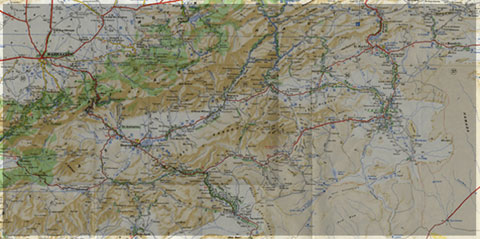
cartothéques
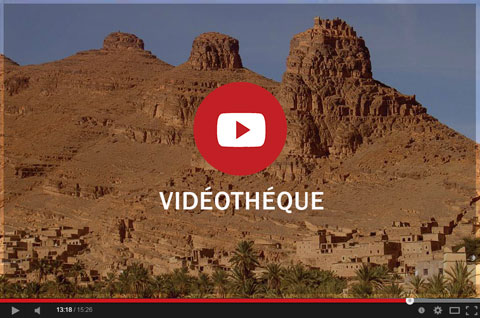

Photothéques
Publications & éditions




